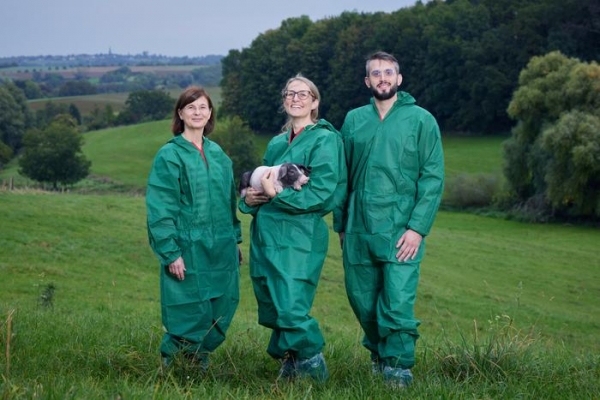Which sustainability goals do people in Germany find more important: Animal welfare? Or environmental protection? Human health is another one of these competing sustainability goals. A team of researchers from the Department of Agricultural and Food Market Research at the University of Bonn have now found that consumers surveyed in their study would rather pay more for salami with an “antibiotic-free” label than for salami with an “open barn” label that indicates that the product promotes animal welfare. The results have now been published in the journal “Q Open.”
The animal husbandry sector faces a complex set of challenges as a result of various competing interests. “Sustainability goals such as animal welfare, environmental protection and human health can quickly conflict with one another,” says Jeanette Klink-Lehmann from the Department of Agricultural and Food Market Research at the Institute for Food and Resource Economics at the University of Bonn. At the same time, stricter standards in animal husbandry could have an impact on competitiveness because it is not always possible to compensate for any associated increases in costs with higher consumer prices. This can threaten the viability of family-run farms and also impact rural communities. “In order to develop appropriate policy conditions, it is vital to investigate and clarify these conflicts in the sustainability debate,” says Prof. Monika Hartmann, Head of the Department of Agricultural and Food Market Research at the University of Bonn.
Read more at: University of Bonn
Prof. Dr. Monika Hartmann, Jeanette Klink-Lehmann and Milan Tatic at the Frankenforst Campus in Vinxel in the Siebengebirge region (Photo Credit: Volker Lannert/University of Bonn)


